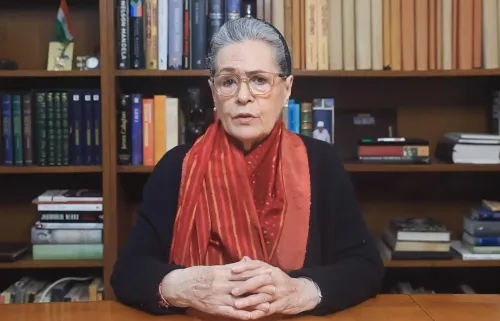How Much Paddy Has Been Procured in Haryana?

Synopsis
Key Takeaways
- 8.44 lakh MT of paddy procured in Haryana.
- Direct payments of Rs 9,029.39 crore to farmers.
- Payment at MSP of Rs 2,389 per quintal.
- Procurement ongoing under Union government's MSP policy.
- Farmers urged to meet quality standards.
Chandigarh, Oct 23 (NationPress) The Haryana state government has announced that an impressive 8.44 lakh metric tonnes (MT) of paddy has been successfully procured. This announcement was made on Thursday.
A total of 49.94 lakh MT of paddy has arrived at procurement centres across the state.
During this kharif procurement season, an astounding Rs 9,029.39 crore has been directly transferred to the bank accounts of farmers within the state.
According to a spokesperson from the Department of Food, Civil Supplies and Consumer Affairs, the government has prioritized timely payments to farmers at the minimum support price (MSP).
The spokesperson also mentioned that the government is dedicated to ensuring efficient and smooth paddy procurement in all designated grain markets while keeping the farmers' interests at the forefront.
HAFED, along with Warehousing and Food and Supplies agencies, is actively procuring paddy across various districts. Instructions have been issued to relevant departments to ensure that farmers do not face any challenges while selling their crops.
Paddy is being acquired from farmers who are registered on the 'Meri Fasal Mera Byora' portal. To date, procurement has been completed from 252,693 registered farmers through this system, as stated by the spokesperson.
This procurement is ongoing under the MSP policy outlined by the Union government, with payments for the procured crop being directly deposited into the farmers' bank accounts.
Farmers have been urged to bring their paddy to the mandis only after confirming that it meets the quality standards set by the Union government, particularly the moisture limit of 17 percent.
The state's procurement agencies have established sufficient arrangements for a seamless process of purchasing and lifting paddy.
The payment for the procured paddy is being made at the MSP of Rs 2,389 per quintal, as determined by the government of India, without any deductions.
The spokesperson emphasized the need for maintaining proper facilities in mandis, including electricity, clean drinking water, and toilets.
Farmers have been encouraged to bring their well-dried paddy to the markets to ensure they receive fair and timely payment for their produce. Additionally, commission agents are responsible for cleaning paddy at their level.










